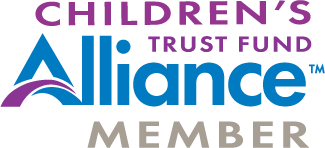
Prevention and Community Support Section

Prevention and Community Support works with community-based and statewide organizations to build strong families and reduce child maltreatment through collaborative partnerships, funding and promoting evidence-based programs and services.
About the Prevention and Community Support Section
The Prevention and Community Support Section (PCS) works within the Division and in partnership with community-based organizations to reduce child abuse and neglect. Using state and federal funding streams, PCS supports the use of evidence-based and evidence-informed practices and programs to improve outcomes for children and families. PCS also functions as the Children’s Trust Fund entity for the state of Georgia.
In an effort to assist the Division in providing Georgia with safe children, strengthened families, and stronger communities, PCS-funded services include parent education, screening and linkage to appropriate resources, training opportunities, high-quality home visitation, adolescent pregnancy prevention and youth development, and professional development for our providers.
PCS builds capacity in the prevention of child maltreatment throughout the state by providing grant funding, training, and technical assistance to community-based primary and secondary child maltreatment and adolescent pregnancy prevention activities. Primary, secondary, and tertiary maltreatment prevention efforts help local communities promote safe, stable nurturing relationships and environments for all Georgia’s families. Our areas of focus include promoting primary and secondary child abuse and neglect prevention, early intervention and parent education.
Promoting Primary and Secondary Prevention
The Center for Disease Control’s Essentials for Childhood has found that promoting safe, stable nurturing relationships (SSNR) and environments through primary and secondary prevention programs and services will decrease rates of child maltreatment, and also reduce long term physical and behavioral health problems, substance abuse, crime rates, and poor school performance1.
Early Intervention
Research highlights the first three years of life as an important intervention period for influencing a child’s trajectory and the nature of the parent-child relationship.2,3 Studies have found that toddlers who have participated in prevention programs specifically designed to prepare them for school displayed higher verbal and math scores and less risky behaviors as teenagers.4,5
Parent Education
Knowledge of child development and parenting practices significantly increases when caregivers have participated in parent education programs, such as Parents as Teachers. Parents engage in more language and literacy promoting behaviors with their children and are more involved in their children’s schooling.6.7
PCS Goals
The goals of the Prevention and Community Support Section are:
- To support community-based efforts to develop, operate, expand and enhance targeted projects and initiatives aimed at improving outcomes for children and families; and
- To support networks of coordinated resources and activities to strengthen and support families.
The Prevention and Community Support Section within the Georgia Division of Family and Children Services promotes the health, safety and wellness of Georgia’s children and families by:
- Developing and enhancing community-based projects and prevention strategies which provide primary and secondary prevention programs for families to prevent child abuse and neglect
- Developing and maintaining state and local interagency collaborative efforts through systems integration and systems change aimed at improving outcomes for families and communities.
- Raising awareness and the commitment to promote safe, stable, nurturing relationships and environments and prevent child maltreatment
- Creating the context for healthy children and families through the promotion of positive community norms about parenting programs, acceptable parenting behaviors and parents seeking help
- Engaging all sectors of the community to acknowledge that we all share responsibility for the well-being of children
- Promoting and enhancing Georgia’s family resource centers, along with other family strengthening and support programs
- Ensuring caregivers with lived experience are engaged and have an integrated voice and presence in decision making processes
- Reducing adolescent sexual activity, pregnancies, births, repeat births, and sexually transmitted diseases and infections.
- Increasing the use of adolescent pregnancy prevention education for adolescents by initiating after-school, school-based, or community-based positive youth development programs
- Managing Georgia’s Promoting Safe and Stable Families Program (PSSF) federal child welfare funding to develop and establish, or expand, and to operate coordinated programs of community-based family support services, family preservation services, family reunification services, and adoption promotion and support services
1. Guralnick, M. J. (2011). Why early intervention works: A systems perspective. Infants & Young Children, 24(1), 6.
2. McCormick, M. C., Brooks-Gunn, J., Buka, S. L., Goldman, J., Yu, J., Salganik, M., & Bauer, C. R. (2006). Early intervention in low birth weight premature infants: results at 18 years of age for the Infant Health and Development Program. Pediatrics, 117(3), 771-780.
3. Duncan, G. J., Dowsett, C. J., Claessens, A., Magnuson, K., Huston, A. C., Klebanov, P., ... & Sexton, H. (2007). School readiness and later achievement. Developmental Psychology, 43(6), 1428.
4. Parents as Teachers National Center, Inc. (2012). Parents as teachers: An evidence-based home visiting model. Retrieved online at https://parentsasteachers.org/evidencebased-home-visiting-model#aboutebm .
5. Zigler, E., Pfannenstiel, J. C., & Seitz, V. (2008). The Parents as Teachers program and school success: A replication and extension. The Journal of Primary Prevention, 29(2), 103-120.
6. Accessed October 13th, 2015 from https://www.cdc.gov/violence-prevention/about/index.html
7. Karoly, L. A., Kilburn, M. R., & Cannon, J. S. (2006). Early childhood interventions: Proven results, future promise. Rand Corporation.